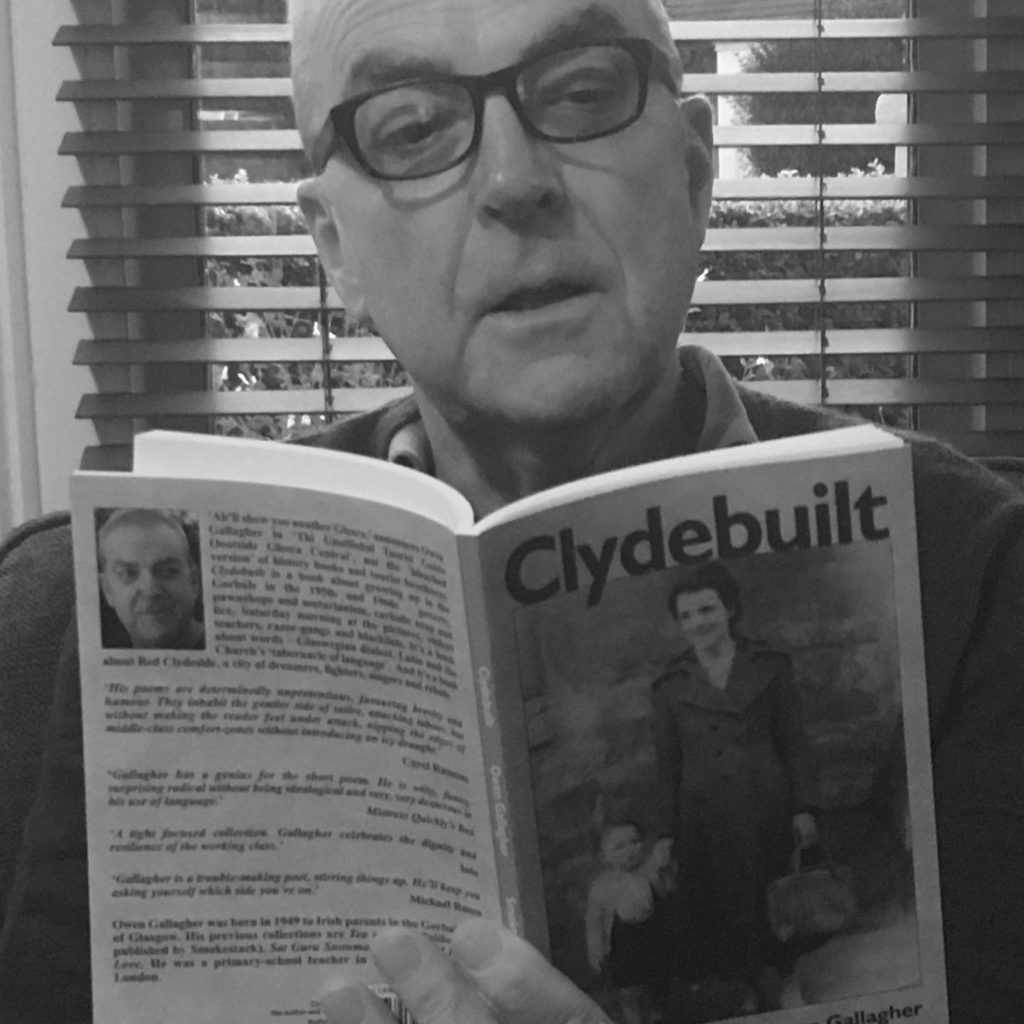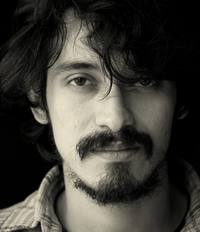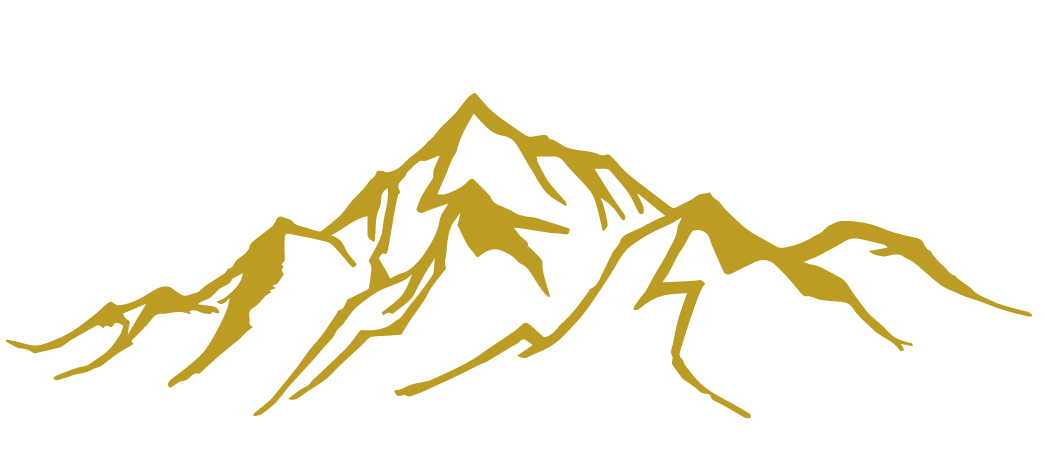
CONSIDER BEFORE DISCARDING BY MARTI LEIMBACH
Consider Before Discarding There was a time when my family members all began dying. You’ll know what I mean if you pay attention to the way that leaves turn in fall. It did not happen suddenly, But we who were still young would not admit the season was turning, had turned. We did not have clothes for mourning. To my mother’s funeral, I wore her own dress. But they could read the signs, even if we could not. They left things for us: A jar of coins, a box of old eyeglasses, a fold of damask linen, never used. The jewellery they laid out on the tops of dressing tables, the better clothes in plastic. They left notes too. Like they wanted us to remember one last thing. The cockstop is in the downstairs cloakroom. This switch is for hot water. My grandfather, who was quietly devout, left both his school tie clip, and the cufflinks given to him as a wedding present from my grandmother. They rested on his Book of Psalms along with a note, tucked between the pages of his New Testament. Consider before discarding, it read. Marti Leimbach Marti Leimbach is the author of seven novels for adults and one for young adults. Her books include the Waterstone's bestseller, Daniel Isn’t Talking, and the New York Times and international bestseller Dying Young, which was also made into a film starring Julia Roberts. She has written for major newspapers and magazines across the world, including The Times, Vogue, Redbook, The Guardian, Boston Globe, and Cosmo. Widely translated and published worldwide, Marti is a core tutor at the University of Oxford’s Master’s Programme in Creative Writing. She can be reached at https://martileimbach.com
POEM OF THE MONTH
LETTER BY Dr. WAYNE PRICE

LETTER By: Dr.Wayne Price I’m living on the river now. Whatever visits, day or night, can’t stay long. Rains bring the mountains to me with or without my belief; the house I left, door ajar, is as footloose as they are. Somewhere, estuaries forget themselves, like sleepers’ hands relaxing. Here, fish like leaves and long pale leaves like fish drift by, form by form; their shadows slide on gravel and sand, remain distant from them. Love, bring me something useful if you come. Paper for this letter to you, an empty bottle to send it in. Dr Wayne Price is a Senior Lecturer in English Literature and Creative Writing. His teaching and scholarship specialisms are in 20th-century American poetry and fiction, and he has published widely in the UK, Ireland, the US and Australia. He has won numerous national and international awards for fiction and poetry and has twice been a finalist in the Manchester International Poetry Prize (2013 and 2014), one of the UK's richest poetry awards. His short story collection Furnace (Freight Books, 2012) was longlisted for the Frank O'Connor Prize and nominated for the Saltire Scottish First Book of the Year. His most recent full-length publications are a novel, Mercy Seat (Freight Books, 2015) and a pamphlet collection of poetry, Fossil Record (Smith|Doorstop, 2015), one of Carol Ann Duffy's four 'Laureate's Choices'. His story 'Everyone's the Same Inside' appears in Best European Fiction 2017 (Dalkey Press)
POEM OF THE MONTH
MAPWORK BY Dr. MARIAH WHELAN

MAPWORK A whole morning wasted trying to find the house I think my dad was born inside. I’d wanted to make my way into his village by memory (whose memory?), took a cobbled way that skirted the burned-out mill, but every path led me onto garages or the boards of building sites. The only way I could go was down, I walked until the cobbles gave way to a muddy path salted with white stones (or were they grey?) and at a gap in the hedge heaved myself up and over a stile, the wood shaking under my weight like a labrador tries to throw off rain. On the other side I could hear water inside the field’s edgework of brambles (or were they hawthorn?), followed the sound down into a knuckle of valley where the meeting fields held a stream cut deep and thin through the blonde turf. Crouched (or did I sit?) at the bank’s edge I put my hands into the water’s yellow beard of foam. It was cold as metal, choked with broken, rotting reeds; the heaviness of water folding itself up and under its own glassy weight. All things get eaten from below in the end— old footpaths and fallen way-stones, pavements, broken pottery and rabbit bones— the ground keeping its human secrets. I looked back uphill to the village that had slipped me like a quick, wet animal: its mute terraces, the plain walls closing ranks around the house I’d thought my dad was born inside, I felt lonely for my life (whose life?), never more at home. Dr. Mariah Whelan is an award winning poet from the UK. Her novel-in-sonnets was shortlisted for the Poetry Book Awards, won the AM Heath Prize and was an Oxford Poetry Library 'Book of the Month'. She is the Jaqueline Bardsley Poet-in-Residence at Homerton College, The University of Cambridge.
BOY IN A CAPE

Owen Gallagher
Boy in a Cape You have to imagine the boss in the workplace, the way he talks and wags his finger at this worker who daren’t speak back. Imagine this worker at home the way he sometimes talks and wags his finger at his son whose bottom-lip trembles. Then imagine the boy crying as his mum tells him of a bad man at his daddy’s workplace and how the next morning the boy, without breakfast, slips into his Superboy clothes, tails his dad to his workplace, and stands feet apart, in front of the boss, gazing up, clenching fists of steel. Originally from Gorbals, Glasgow, Owen Gallagher lives in London. His poetry has been widely published in the UK and abroad, and he has received awards from the London Arts Board as well as The Society of Authors. His poems have been displayed on London buses, in public places in Ireland and on the Listening Wall at the Southbank Centre, London, during the Poetry International Festival, 2014. His published poetry collections include Sat Guru Snowman (Peterloo Poets, 2001), Tea with the Taliban (Smokestack Books, 2012) A Good Enough Love (Salmon, 2015), and a memoir in verse; Clydebuilt (Smokestack Books, 2019). Gallagher has won poetry competitions and his poems have been displayed on London buses and in public places in Ireland and on The Listening Wall in the Southbank Centre, London, in 2014 as part of the Poetry International Festival, 2014. Clyedbuilt was shortlisted for Scotland’s National Poetry Book of the Year, 2021.
THIS MOUTH IS AN OCEAN

This Mouth is an Ocean This mouth is an ocean floating on your tectonicity, its water now swirling between two open jaws- a shock of skin, tissue, raw flesh, and now it has grown a lingual muscle that consumes the bone below the neck: now all teeth, and softnesses, all of language too, until all awareness is subsumed underwater; all of existence is a gasping for air. By: Nikita Parik Nikita Parik is the 2022-2023 Charles Wallace Fellow in Creative Writing at the University of Stirling (Scotland). Her latest book is My City is a Murder of Crows (Poetry; July 2022). She holds a Master's in Linguistics, a three-year diploma in French, and another Master’s in English. Diacritics of Desire (2019) is her debut book of poems, followed by Amour and Apocalypse (2020), a novel in translation. She is the recipient of the Nissim International Poetry Prize 2020 and was shortlisted for the Rama Mehta Writing Grant 2021.. She has been invited to read her poems at the Sahitya Akademi Multilingual Poets Meet and Sahitya Akademi Young Writer's Meet programmes. Her works have appeared in Rattle, U City Review, The Alipore Post, Vayavya, The Bombay Literary Magazine, Bengaluru Review, and others. She currently edits EKL Review.
VISITATION
BY ROHAN CHHETRI

A bleak day, but for the pale sun bruising the air to a colour of wine. Across the street, a yellow dollhouse on a tenement balcony, & scrawled across it in red, a little girl’s initials I will not reveal. But what it all stands for: the same flaring sadness I felt leaving her house on mornings like this. I remember the bright days after, the way I leaned my forehead against the fogged glass door of the train each morning, undulating along the brief stretch of the cantonment, where the forest thinned into a few trees, burnt ground, & a rampart of concrete and barbwire. I waited every morning to see them grazing on the periphery: three brown antelopes I couldn’t name by taxonomy. Outside, soldiers patrolled the morning with their mute rifles across welted shoulders. And on some mornings, I would see one of the three stray & break into a careless lope, so gently, I imagined the underbrush rising beneath the wake of its cloud feet must feel something close to knowing you were loved. The way I still felt then, towards the end, as I lifted her brown hand from across my collarbone, slipped into my poor clothes in the half-light of the living room, & tiptoed out of the house into the deepening dawn, before the morning’s gleaming thumb could snuff out any small fires we might have divined by night.
Rohan Chhetri is a Nepali-Indian writer and translator. He is the author of LOST, HURT, OR IN TRANSIT BEAUTIFUL (Winner of the Kundiman Poetry Prize 2018), JURASSIC DESIRE (Winner of the Per Diem Prize 2017), and SLOW STARTLE (Winner of the Emerging Poets Prize 2015).
A recipient of a 2021 PEN/Heim Grant for translation, his poems have appeared in The Paris Review, Revue Europe, AGNI and New England Review, Fulcrum, Rattle, Prelude, The Antigonish Review, and elsewhere. He has received poetry fellowships from the Norman Mailer Centre and Sangam House, and won awards from RædLeaf Poetry India and Toto Funds the Arts.
